第89章
Mrs.Touchett, before arriving in Paris, had fixed the day for her departure and by the middle of February had begun to travel southward.
She interrupted her journey to pay a visit to her son, who at San Remo, on the Italian shore of the Mediterranean, had been spending a dull, bright winter beneath a slow-moving white umbrella.Isabel went with her aunt as a matter of course, though Mrs.Touchett, with homely, customary logic, had laid before her a pair of alternatives.
"Now, of course, you're completely your own mistress and are as free as the bird on the bough.I don't mean you were not so before, but you're at present on a different footing- property erects a kind of barrier.You can do a great many things if you're rich which would be severely criticized if you were poor.You can go and come, you can travel alone, you can have your own establishment: I mean of course if you'll take a companion- some decayed gentlewoman, with a darned cashmere and dyed hair, who paints on velvet.You don't think you'd like that? Of course you can do as you please; I only want you to understand how much you're at liberty.You might take Miss Stackpole as your dame de compagnie; she'd keep people off very well.I think, however, that it's a great deal better you should remain with me, in spite of there being no obligation.It's better for several reasons, quite apart from your liking it.I shouldn't think you'd like it, but I recommend you to make the sacrifice.Of course whatever novelty there may have been at first in my society has quite passed away, and you see me as I am- a dull, obstinate, narrow-minded old woman.""I don't think you're at all dull," Isabel had replied to this.
"But you do think I'm obstinate and narrow-minded? I told you so!"said Mrs.Touchett with much elation at being justified.
Isabel remained for the present with her aunt, because, in spite of eccentric impulses, she had a great regard for what was usually deemed decent, and a young gentlewoman without visible relations had always struck her as a flower without foliage.It was true that Mrs.
Touchett's conversation had never again appeared so brilliant as that first afternoon in Albany, when she sat in her damp waterproof and sketched the opportunities that Europe would offer to a young person of taste.This, however, was in a great measure the girl's own fault; she had got a glimpse of her aunt's experience, and her imagination constantly anticipated the judgements and emotions of a woman who had very little of the same faculty.Apart from this, Mrs.
Touchett had a great merit; she was as honest as a pair of compasses.There was a comfort in her stiffness and firmness; you knew exactly where to find her and were never liable to chance encounters and concussions.On her own ground she was perfectly present, but was never over-inquisitive as regards the territory of her neighbour.Isabel came at last to have a kind of undemonstrable pity for her; there seemed something so dreary in the condition of a person whose nature had, as it were, so little surface- offered so limited a face to the accretions of human contact.Nothing tender, nothing sympathetic, had ever had a chance to fasten upon it- no wind-sown blossom, no familiar softening moss.Her offered, her passive extent, in other words, was about that of a knife-edge.Isabel had reason to believe none the less that as she advanced in life she made more of those concessions to the sense of something obscurely distinct from convenience- more of them than she independently exacted.She was learning to sacrifice consistency to considerations of that inferior order for which the excuse must be found in the particular case.It was not to the credit of her absolute rectitude that she should have gone the longest way round to Florence in order to spend a few weeks with her invalid son; since in former years it had been one of her most definite convictions that when Ralph wished to see her he was at liberty to remember that Palazzo Crescentini contained a large apartment known as the quarter of the signorino.
"I want to ask you something," Isabel said to this young man the day after her arrival at San Remo- "something I've thought more than once of asking you by letter, but that I've hesitated on the whole to write about.Face to face, nevertheless, my question seems easy enough.Did you know your father intended to leave me so much money?"Ralph stretched his legs a little further than usual and gazed a little more fixedly at the Mediterranean."What does it matter, my dear Isabel, whether I knew? My father was very obstinate.""So," said the girl, "you did know."
"Yes; he told me.We even talked it over a little.""What did he do it for?" asked Isabel abruptly.
"Why, as a kind of compliment."
"A compliment on what?"
"On your so beautifully existing."
"He liked me too much," she presently declared.
"That's a way we all have."
"If I believed that I should be very unhappy.Fortunately I don't believe it.I want to be treated with justice; I want nothing but that.""Very good.But you must remember that justice to a lovely being is after all a florid sort of sentiment.""I'm not a lovely being.How can you say that, at the very moment when I'm asking such odious questions? I must seem to you delicate!""You seem to me troubled," said Ralph.
"I am troubled."
"About what?"